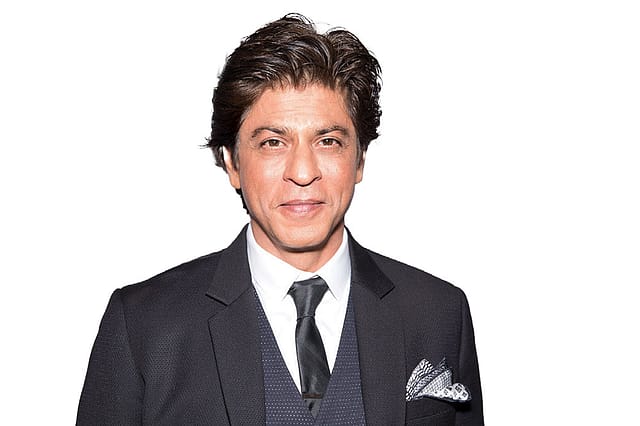Shah Rukh Skips the Media

There was a time during and after the Emergency when Amitabh Bachchan didn't speak to the film press. It was a boycott which assumed the proportions of a ban, and it coincided with some of Bachchan's biggest hits. You may or may not have noticed but Shah Rukh Khan has also quietly refused to submit himself to any media interviews now, before, during or even after the release of his movies. Starting with Pathaan, this year's biggest hit, the marketing of his movies has simply skipped the convention of TV and print interviews. Khan has even met some media owners at his home, talked to them politely, but steadfastly refused to do interviews. The only interaction he did after Pathaan was after its success, with his co-stars, with no questions from the audience. Even when his wife Gauri Khan's book My Life in Design was launched, he did a controlled interaction with the publisher, with no questions from the audience. It is a template he is following for Jawan, his next release in September, relying on fan clubs across the country, much like southern superstars do. Clearly, the actor has still not recovered from the negative coverage around his son Aryan's arrest for the alleged use of drugs. Will he break his silence for daughter Suhana Khan's debut as an actor in Netflix's The Archies or his son's directorial debut with the series Stardom? As the industry looks for another marketing model, increasingly other actors are sticking to campus visits and mall calls across India, rather than TV and print interviews. With the volatile political environment and quotes being used out of context, stars are preferring to let their work speak for them, especially if they are not particularly articulate like Salman Khan. As for Shah Rukh Khan's wit, well now fans will have to settle for his occasional Twitter chats. The relationship between the media and the Hindi film industry needs to be re-examined. While the industry needs the media for promotion, especially at a time when theatrical revenue is a challenge, the media needs it for stories, or content, as it is called in the age of social media. But the industry usually conducts promotions before the movie is screened for the media which reduces the questions to the banal or sensational. Rarely does one hear actors talking about their craft or their process, and the media, with its need for clickbait headlines, prefers to ask questions that will provoke. Result: much heat and no light.
When Hollywood Offends India
Christopher Nolan's Oppenheimer's use of the Bhagavad Gita in rather intimate circumstances is not the only time Hollywood has offended India. There was the use of the Gita's lines during an orgy scene in Stanley Kubrick's Eyes Wide Shut, but even before that, Amrish Puri's character Mola Ram in Indiana Jones and the Temple of Doom (1984) didn't go down very well with many Hindus. Puri's character was shown to be the leader of Thuggees, forcing unfortunate slaves to drink human blood as a form of sacrifice for the Goddess Kali. Puri got quite into the flow of things apparently and his imprecations, invoking Kali, even as he performed sort of open heart surgeries with much glee, were all improvised. The entire underground Thuggee hideout was shot in England, at the Elstree Film Studios, as was the infamous dinner scene which portrayed Indians as savages eating and enjoying chilled monkey brains, beetles, live eels, and gigantic eyeball soup, even as Kate Capshaw kept screaming louder and louder. From all accounts, Steven Spielberg meant it as an elaborate joke but not everyone was amused. The Indian government wanted to retain the final cut privilege in exchange for allowing the shoot in India, so Spielberg wasn't able to use Indian locations. Even the parts meant to be India, Mayapore and Pankot Palace, were either shot in Sri Lanka or at the Elstree Studios.
Openomics 2026: Continuity and Conviction
06 Feb 2026 - Vol 04 | Issue 57
The performance state at its peak
Scene and Heard
There was another Indian connection to the Barbenheimer weekend which escaped attention. In an interview with CNN about the film Barbie, Margot Robbie said the director Greta Gerwig had told her to approach Barbie's journey like that of Lord Buddha's discovery of self, stripping away everything down to the basics. Given that it is the ultimate inversion of capitalism, it seems quite appropriate but there is no doubt some would find even that reference offensive.
